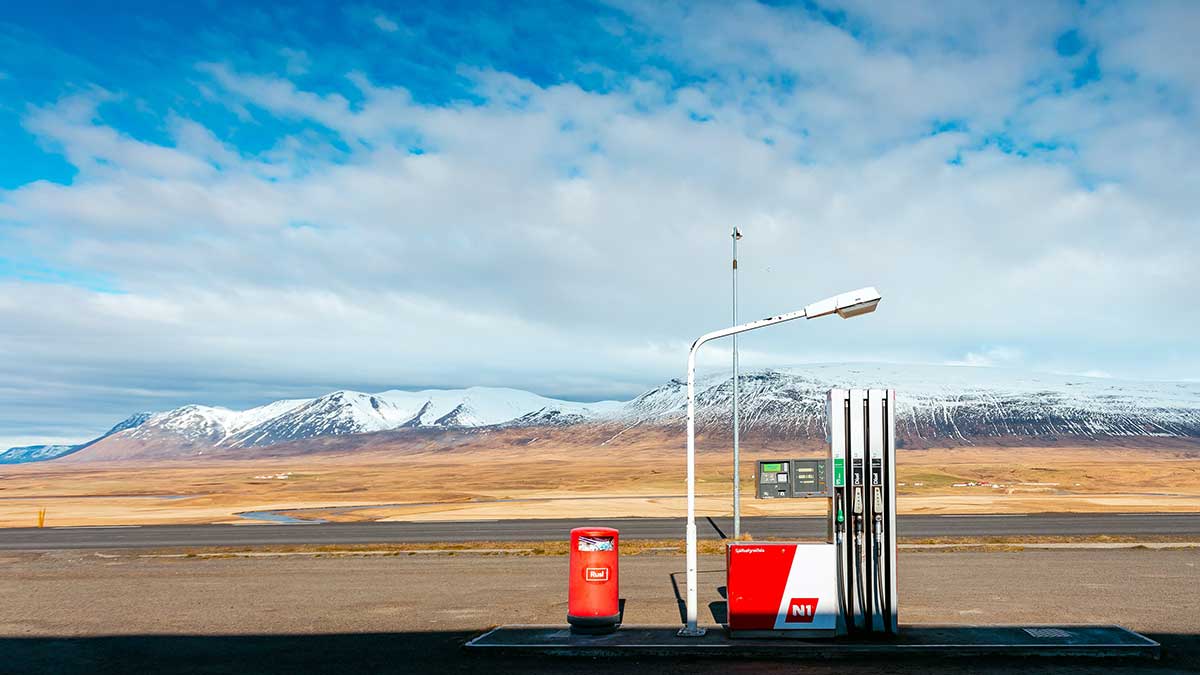What Are the Different Types of Gas?

Pulling up to the pump at the local gas station can be a confusing endeavor for new drivers. Almost all gas stations in America have at least three fuel options or more. But what do they all mean? If your vehicle has a normal engine, then buying the cheapest fuel available might be your best bet, but it doesn’t hurt to explore all of your options for different types of gas so you know what you’re putting in your tank.
What is Gasoline Made Of?
Gasoline is the most common form of fuel available at the gas station. Retail gasoline is a fossil fuel made from a petroleum liquid—crude oil—and produced in petroleum refineries and blending facilities. After crude oil is extracted and shipped to the refinery, it’s heated to 350oC in a pressure chamber before being distilled into gasoline. Gasoline needs to be blended with different liquids, like ethanol, to increase its octane rating before it can be sold commercially.
Ethanol is a cost-effective type of fuel that’s made from sustainable sources like corn or sugarcane. Manufacturers are creating more cars that use ethanol, and a few cars on the market already run completely on ethanol.
Octane Ratings, Explained
Fuel octane ratings are a measure of the fuel’s stability or the pressure level at which the gas will combust inside a car engine. The lower the octane rating, the faster the fuel burns in your engine. Gas is meant to combust in a controlled way, but sometimes the unburned fuel in your engine spontaneously combusts and burns too quickly. This can create a sharp sound in your engine, referred to as “knocking” or “pinging.” Knocking is bad for your vehicle, as it can erode your combustion chamber over time, overheat your spark plugs, and potentially prevent your vehicle from operating efficiently. If you switch from premium fuel to regular fuel and hear any knocking or pinging in your engine, you might need to switch back to premium fuel.
Different Types of Gas, Explained
Gas stations in America sell three different grades of gasoline based on their octane level:
• Regular (the lowest octane fuel)
• Midgrade (the middle range octane fuel)
• Premium/Super (the highest octane fuel)
Another type of fuel you might have seen at the gas pump is diesel fuel. Diesel fuel is also made from petroleum, but it’s refined using a different technique than gasoline. Diesel is extracted from crude oil that’s heated between 200o and 350oC and then distilled into fuel. Most heavy-duty vehicles, like trucks and farming equipment, have diesel engines, but some manufacturers are creating smaller cars that run on diesel because it’s more efficient than gas. Diesel fuel uses fewer greenhouse gasses than gasoline. However, diesel engines can have difficulty starting in bad weather and emit a compound that pollutes the air and cause smog.
Is Premium Fuel Worth the Money?
Some car manufacturers recommend or require premium gas for their vehicles. Yet since the difference in price between regular and premium gas has increased, consumers want to know if they can save money by purchasing regular gas. Cars, like SUVs and sports cars, might run better on premium gas because their engines are designed to produce more fuel compression for a better drive, but most vehicles operate well with the cheapest option available at the gas station.
Unless your vehicle requires premium gas, Consumer Reports recommends buying the most affordable option for the best deal. They conducted a series of tests using two different types of sedans that were recommended, but not required, to use premium gas. They found that both vehicles reached the same fuel economy with regular gas as they did with premium gas and that both cars sounded the same during the ride and didn’t have any knocking or pinging in their engine. In addition, the acceleration times for both vehicles were the same for both premium and regular gasoline.
AAA and the Automobile Club of Southern California’s Automotive Research Center conducted a similar study and came to the same conclusion as Consumer Reports. Their tests didn’t find any significant differences in performance, efficiency, or emissions between premium fuel and regular fuel. Instead, the study found that regular cars that don’t require premium gasoline aren’t designed to reap the benefits of premium gas. However, it won’t damage your car to use premium gas when it’s not necessary.
Whichever way you choose to fill your tank, make sure your vehicle is insured before hitting the road. The General has been helping drivers find affordable auto insurance policies for nearly 60 years, and we offer non-standard policies with the same affordable rates and amazing customer service as our standard policies. Worried about getting stranded with no fuel? Ask about options for a policy with roadside assistance and know that you’re covered in an emergency.







